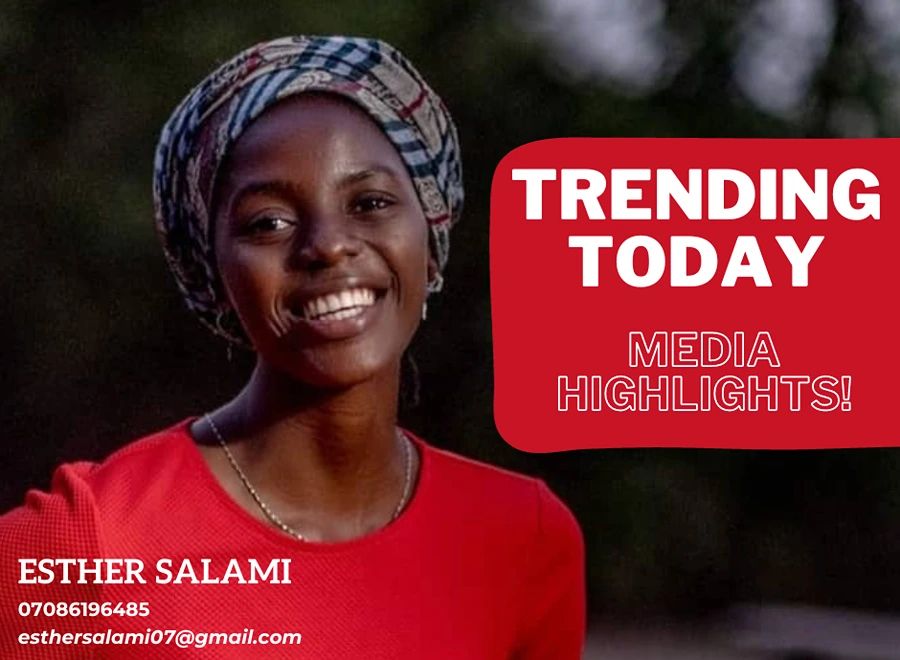Hello and welcome! In today’s trending news stories;
1. Pastor Enoch Adeboye, General Overseer of the Redeemed Christian Church of God, has alleged a scheme by Nigerian oil marketers and international oil companies (IOCs) to undermine private refineries like Dangote Petroleum Refinery. Speaking at the November 2024 Abuja Special Holy Ghost Service, Adeboye urged Nigerians to pray against these actions, which he claimed are aimed at perpetuating reliance on fuel imports and causing public hardship. Despite substantial financial investments, Adeboye highlighted past failures of Nigeria’s four state-owned refineries and commended Aliko Dangote for establishing a functioning private refinery. He expressed dismay over ongoing efforts to sabotage Dangote’s operations: “God raised someone to build a refinery that works… Now he is refining petrol, and some people want to stop him from selling it.” While the Independent Petroleum Marketers Association of Nigeria (IPMAN) has agreed to source petrol directly from Dangote Refinery, Nigerians continue to pay ₦1100 to ₦1200 per liter at retail outlets, including NNPC stations.
3. Endorsements for Seyi Tinubu, son of President Bola Tinubu, as a potential candidate for the 2027 Lagos governorship election have sparked heated debate. On November 19, The Coalition of Nigerian Youth Leaders (CONYL) endorsed Seyi after a meeting in Owerri. Similarly, on November 21, the Middle Belt Youths added their support during a press conference in Lagos, while the Friends of Seyi Tinubu (FOST) praised his philanthropic efforts and leadership skills. However, the endorsements have been controversial. APC member Joe Igbokwe, in a Facebook post, criticized the move as a ploy against President Tinubu, calling it a “needless distraction.” On the same day, Lagos State Speaker Mudashiru Obasa refuted claims of gubernatorial ambitions while addressing the 2025 Lagos budget presentation. The Lagos APC, through spokesperson Seye Oladejo, dismissed the endorsements as opposition-driven speculation, reiterating that the party’s focus remains on governance and upcoming local government elections in 2025. The Lagos PDP has opposed Seyi Tinubu’s candidacy. On November 22, PDP spokesperson Hakeem Amode rejected the notion of governance as a family inheritance, warning of strong resistance.
5. Philippine President Ferdinand Marcos Jr. has condemned threats against him and his family following a shocking declaration by Vice President Sara Duterte that she had ordered an assassin to kill him, his wife, and the House Speaker if she were killed. Marcos called her remarks “reckless” and vowed to oppose such criminal plans. The feud follows the breakdown of the once-powerful alliance between the Marcos and Duterte families, which helped secure Marcos’ landslide victory in the 2022 elections. Sara Duterte, daughter of former President Rodrigo Duterte, resigned from Marcos’ cabinet in June and has faced legislative scrutiny over alleged misuse of public funds. Her threat was sparked by lawmakers’ decision to detain her chief of staff for obstructing a probe into these allegations. Justice Undersecretary Jesse Hermogenes Andres announced that Duterte, who lacks immunity, will face investigation for her assassination threats, calling the situation a “serious threat” to the rule of law. House Speaker Martin Romualdez, a Marcos ally, denounced her comments as “reckless” and “dangerous.” This controversy comes amid recent legislative inquiries into Rodrigo Duterte’s violent “war on drugs” and potential crimes against humanity, with the Marcos administration signaling cooperation with the International Criminal Court’s investigation into the former president.
6. Namibia’s Vice President Netumbo Nandi-Ndaitwah could become the country’s first female president in the November 2024 presidential election. Over 1.4 million registered voters are set to participate, and 15 political parties will contest the presidency and National Assembly seats. Nandi-Ndaitwah’s party, the South West Africa People’s Organization (SWAPO), has led Namibia since its independence in 1990 but has faced waning support due to corruption scandals, particularly in the fishing industry, which led to arrests of cabinet members and associated businessmen. In 2019, SWAPO lost its two-thirds parliamentary majority for the first time in decades. Analysts, including Professor Henning Melber, warn that SWAPO faces challenges attracting younger voters, the “born-frees,” who prioritize governance and delivery over historical liberation ties. Despite these hurdles, early polls suggest Nandi-Ndaitwah and SWAPO are leading. Nandi-Ndaitwah, 72, has promised to address youth unemployment (20%), pledging $4.7 billion to create 500,000 jobs over five years, though critics question the feasibility. Her platform also includes improving women’s rights, equal pay, and healthcare.



